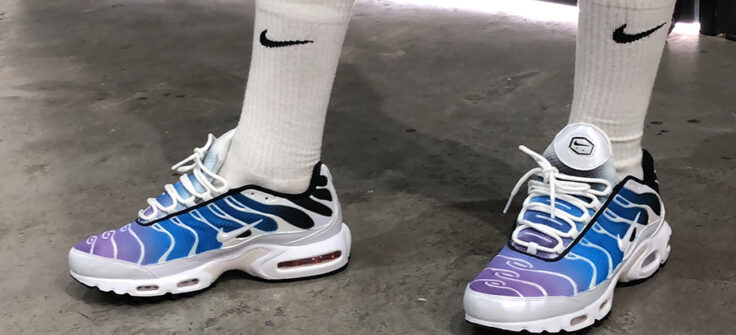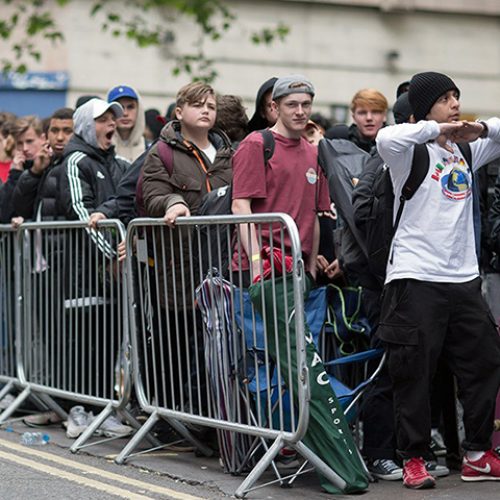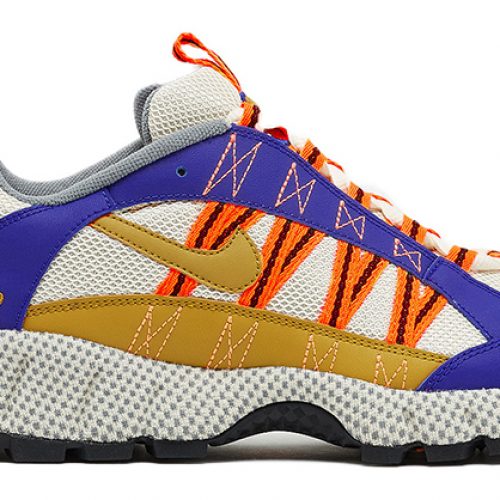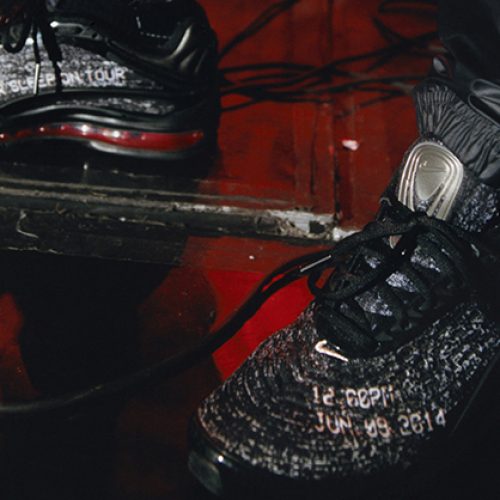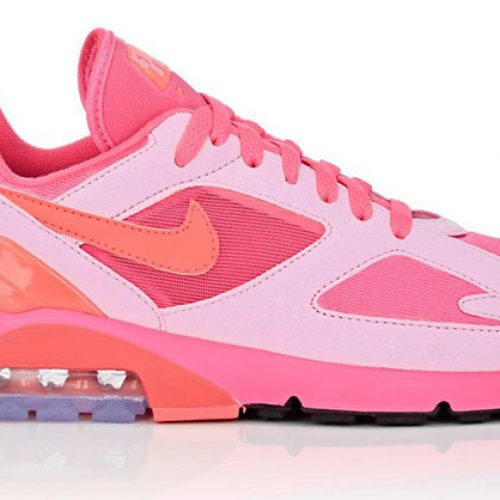Sneaker culture has gone colossal over the last few years. With sneakers dotted on every runway from Gucci and Versace to Chanel, the pressure is constantly on designers and consumers to come up with fresher and bolder designs. Even brand and artist collaborations aren’t enough in 2018.
And this is why custom sneakers have become the ultimate must-have. These exclusive, personalized and one-off designs elevate sneakers above the realm of footwear. Custom sneakers are walking works of art and the modern-day form of self-expression.
“The audience was so receptive to us, which is probably because there was a gap to fill”, says 21-year-old French-Algerian Samia Boumediene, co-founder of Waxfeller, the bespoke sneaker company, which launched in Dubai in January and has since become the biggest and most influential sneaker-spot in town. “People are so happy that we are here”, she adds.
Working with Boumediene is her 24-year-old French-Congolese boyfriend Khaled Alfick. Together they paint sneakers in rare colour ways and add a traditional signature African print on the inside of the shoes. Producing each design in a limited run of 100, the duo then sells them online. And once they sell out, they’re never reproduced.
Having already collaborated with Nike, Level Shoes and Namshi, the duo are currently working on a new line of premium made-to-measure custom sneakers. We caught up with the founders of Waxfeller to find out how to start a sneaker business in Dubai, why African culture is so important to them and why sneakers are their medium of choice.

When did you decide to move in to custom sneakers and make a career out of it?
The idea came about in 2015, out of sheer frustration with the sneaker industry. I wanted to buy the Nike Jordan 1 BRED. Khaled and I looked everywhere, but it sold out in a second. So I went to sleep and tried to stop thinking of it. But Khaled stayed up all night trying to find a way for me to have these shoes. The next morning, he came to me with a red and black Jordan 1 that looked exactly the same as the ones I wanted. But I noticed a detail that was different from Nike’s original Jordan 1 Bred: the sneakers had a little piece of Wax on the tongue of the shoe. That’s how I realised he had actually used an old pair of Jordan 1s, and spent his entire night customizing it for me. When I wore them the next day in Paris [I used to work at the Size? store] everybody was going crazy. That’s when it became obvious that we had to make a business out of this.
So why did you choose to set your business up in Dubai?
We had grown tired with France’s constant Islamophobia. We wanted to live someplace where being Black, Muslim or Arab wasn’t a problem. We saved money and finally made the move in January. We’ve been lucky to meet nice people, who introduced us to the right community.
What are some of the challenges you’ve faced?
I would say the biggest challenge was to find a work/social life balance. For the first six months, we worked on our sneakers all day, went out until four in the morning, and then went back to work at six. And although I believe it is one of the reasons we’ve had such fast growth, it quickly became hard to sustain the rhythm. We luckily learned to rely on our employees and find a healthy balance.
Why sneakers?
From a very young age, sneakers have been a way for us to define ourselves as individuals, yet still belong to a movement. In the playground, the coolest kid was the one with the newest sneakers. I (Khaled) will always remember the feeling of having brand new, all white sneakers each September when I went back to school after the holidays. I remember my mom forcing me to clean them and put them back in the box each day after school, like a ceremony. I remember as a teenager, almost every weekend, we would ride the bus to the mall with some friends, go to FootLocker, and spend the afternoon just looking at all the sneakers, trying them on, and talking about which one was the coolest. I am used to seeing them like they are some kind of precious art work and literally treat them with love and respect.
What’s the core of your creativity when it comes to customisation?
Whether it’s the colours or the fabrics, our sneakers are mostly inspired by Africa. Our aim is to transpose the colourfulness of African garments into sneakers and to adapt them to street culture. Most designers who have worked with African fabrics try to find ways to dilute the African culture so it could adhere to westernized fashion standards. We want to do the opposite. We want to take the street wear aesthetic and make it relevant to an African audience.





